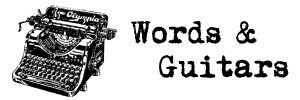The Listening Post: albums round-up
Four new releases worthy of investigation.

In what seems a particularly fruitful period for indie pop, Chorusgirl high step their way to the front of the stage with a confident, self-titled debut (Fortuna POP!, 13th November). Silvi Wersing’s slightly clipped Germanic pronunciation immediately sets them apart, and the icy synths of ‘We Care About You’ enhance the feeling that this is the genre viewed at a slight remove, despite their London base. More Berlin than Bearsden. ‘Girls of 1926’ (an ode to an estranged friend) stands out as being quite Best Coast-y, making melancholy sweetly desirable and while Chorusgirl relies on many standard genre components (bits of Phil Spector, spiky lead guitar, reverb) at no point does it feel like weary pastiche. Indeed the promise of ‘Shivers’, and its bright pop echoes of Altered Images, suggest Wersing’s troupe are more than deserving of an encore.
The Leaf Library are, as the names conjures, studious types and Daylight Versions (wiaiwya, 30th October) is as heady – and evocative – as the scent of a freshly printed book. Calling upon friends from the likes of The Drink and Hop Chip to complete their vision, they emerge with something duvet snug and inviting. Have they spent warm summer days indoors? Of course they have. Kate Gibson’s vocals are quintessentially English indie, but rather than settle for winsome jangle, imagine instead Great Canal Journeys soundtracked by Stereolab. There’s a pastoralism that’s obvious from the track titles – ‘Acre’, ‘Evening Gathers’, ‘Slow Spring’ – which extends to a golden, toasted sound embellished by hints of brass and piano but the restless beats of ‘Tilting’ are a reminder that nature never really sleeps. Some momentum is lost when the tempos drop and the palette becomes sparer but there’s a vision here that more than justifies your time.
Talking of The Drink, The Capital (Melodic Records, 13th November) is one of those albums that catch you unawares. Landing just eleven months after their debut, there’s clearly an urgency about what the trio do (thumbs up! can’t be doing with bands who make the process sound like a chore), an element reflected in the busy guitar of Dearbhla Minogue and David Stewart’s mobile bass work. Post-punk is a terribly molested term, but here it’s apt: pulling upon the anti-rockist acts who looked to Captain Beefheart or African music for new byways to explore, this is recognisably folk dusted indie pop but one which delights in the genre’s possibility rather than its tropes. Minogue sets her distinctive soprano against often highlife style picking, giving the likes of ‘Potter’s Grave’ and ‘The Coming Rain’ a breezy air that that sets them apart from more obvious genre fare. At other times, as on the instrumental ‘Hair Trigger’, Stewart’s steady bass allows Minogue and drummer Daniel Fordham space to get their freak on, and by the time you reach the Strawberry Switchblade-isms of ‘I’ll Never Make You Cry’ you might well have found a new favourite band. Drink deep!
Tuff Love, meanwhile, seem keen on downplaying expectations. The Dregs EP (Lost Map Records, 6th November) follows the well-received Junk and Dross releases, waterproof titles deflecting criticism before it even arrives. A tour supporting Ride saw the duo of Julie Eisenstein and Suse Bear (supplemented by The Phantom Band’s Iain Stewart on stage) emerge from out of their bedroom studio environment and take their lo-fi pop out to bigger audiences, a move that has seemingly emboldened them. Lead track ‘Duke’ has a timely semblance to the woozy shimmer of Lush, and it’s a veneer that carries over into ‘Crocodile’ (complete with pleasing ‘keyboard-set-to-‘flute’ outro). But it’s the last track, ‘Carbon’, with its interesting time and tempo changes that suggests TL could, if they wanted, grow into real contenders.




